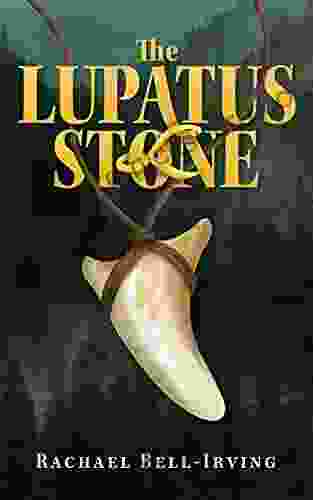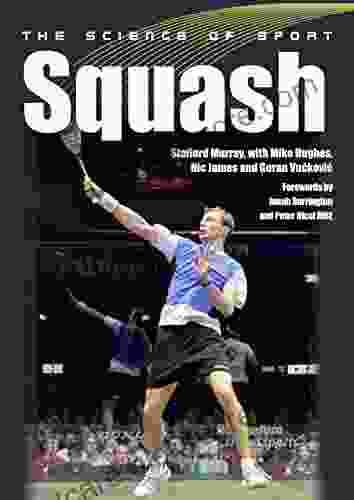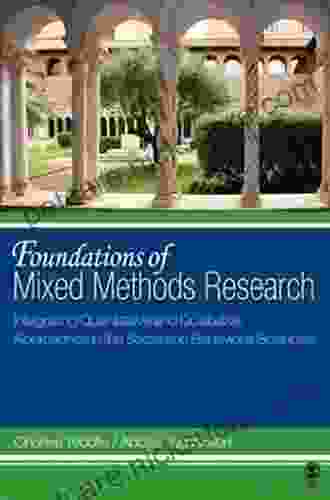Science of Sport: Squash

Squash is a racquet sport that is played between two players in a four-walled court. The game is played with a small, hollow ball that is hit with a racquet. Squash is a high-intensity, fast-paced sport that requires a combination of speed, agility, and endurance.
This article delves into the science behind squash, exploring the physiological demands of the game and the training methods that can help players improve their performance.
Squash is a very demanding sport that requires a high level of fitness. Players must be able to sustain high levels of intensity for extended periods of time. The game requires a combination of speed, agility, and endurance.
4.1 out of 5
| Language | : | English |
| File size | : | 13357 KB |
| Text-to-Speech | : | Enabled |
| Screen Reader | : | Supported |
| Enhanced typesetting | : | Enabled |
| Word Wise | : | Enabled |
| Print length | : | 240 pages |
Speed: Squash players must be able to move quickly and change direction rapidly. They must also be able to accelerate and decelerate quickly.
Agility: Squash players must be agile and able to react quickly to changes in the game. They must be able to change direction quickly and move around the court efficiently.
Endurance: Squash is a physically demanding sport that requires players to be able to sustain high levels of intensity for extended periods of time. Players must be able to recover quickly between points and sets.
There are a variety of training methods that can help squash players improve their performance. These methods include:
Interval training: Interval training is a form of training that involves alternating between periods of high-intensity exercise and rest. This type of training can help players improve their speed, agility, and endurance.
Strength training: Strength training is a form of training that involves using weights or resistance to build muscle strength. This type of training can help players improve their power and explosiveness.
Cardiovascular training: Cardiovascular training is a form of training that involves activities that increase the heart rate and improve cardiovascular fitness. This type of training can help players improve their endurance and recovery time.
Plyometrics: Plyometrics are a form of training that involves exercises that combine strength and speed. This type of training can help players improve their power and explosiveness.
Nutrition is an important part of any training program. Squash players need to eat a healthy diet that provides them with the energy and nutrients they need to perform at their best.
Some key nutrients for squash players include:
Carbohydrates: Carbohydrates are the body's main source of energy. Squash players need to eat a high-carbohydrate diet to ensure they have enough energy to sustain their training and competition.
Protein: Protein is essential for building and repairing muscle tissue. Squash players need to eat a moderate amount of protein to support their recovery from training and competition.
Fat: Fat is an important source of energy and helps to absorb vitamins and minerals. Squash players need to eat a moderate amount of fat to support their training and competition.
Vitamins and minerals: Vitamins and minerals are essential for overall health and well-being. Squash players need to eat a diet that is rich in vitamins and minerals to support their training and competition.
Squash is a demanding sport that requires a high level of fitness. Players must be able to sustain high levels of intensity for extended periods of time. The game requires a combination of speed, agility, and endurance.
There are a variety of training methods that can help squash players improve their performance. These methods include interval training, strength training, cardiovascular training, and plyometrics.
Nutrition is also an important part of any training program. Squash players need to eat a healthy diet that provides them with the energy and nutrients they need to perform at their best.
By following these tips, squash players can improve their performance and achieve their goals.
4.1 out of 5
| Language | : | English |
| File size | : | 13357 KB |
| Text-to-Speech | : | Enabled |
| Screen Reader | : | Supported |
| Enhanced typesetting | : | Enabled |
| Word Wise | : | Enabled |
| Print length | : | 240 pages |
Do you want to contribute by writing guest posts on this blog?
Please contact us and send us a resume of previous articles that you have written.
 Fiction
Fiction Non Fiction
Non Fiction Romance
Romance Mystery
Mystery Thriller
Thriller SciFi
SciFi Fantasy
Fantasy Horror
Horror Biography
Biography Selfhelp
Selfhelp Business
Business History
History Classics
Classics Poetry
Poetry Childrens
Childrens Young Adult
Young Adult Educational
Educational Cooking
Cooking Travel
Travel Lifestyle
Lifestyle Spirituality
Spirituality Health
Health Fitness
Fitness Technology
Technology Science
Science Arts
Arts Crafts
Crafts DIY
DIY Gardening
Gardening Petcare
Petcare Keith Bowden
Keith Bowden Joan Ryan
Joan Ryan Alan Agresti
Alan Agresti Intelligent
Intelligent Hana Ali
Hana Ali Robert Lomas
Robert Lomas Mike Chappell
Mike Chappell Sara Saedi
Sara Saedi Traci Chee
Traci Chee Alan Naldrett
Alan Naldrett Karina Manta
Karina Manta Sarah A Reinhard
Sarah A Reinhard Robert Clifton Robinson
Robert Clifton Robinson Sharon Copeland
Sharon Copeland Rebekah Dodson
Rebekah Dodson Kaoru Sinozaki
Kaoru Sinozaki Alice Roberts
Alice Roberts Fletcher Dunn
Fletcher Dunn Hesam Nemounehkhah
Hesam Nemounehkhah Geraint Thomas
Geraint Thomas Mindfulness Hypnosis Academy
Mindfulness Hypnosis Academy Wendy Higgins
Wendy Higgins Glenda Green
Glenda Green Robert Milner
Robert Milner Duncan Hamilton
Duncan Hamilton Jay Carter
Jay Carter Amanda Kingloff
Amanda Kingloff Michael Borenstein
Michael Borenstein Geoff Powter
Geoff Powter Monica Beyer
Monica Beyer Lindsey Bliss
Lindsey Bliss Alison Gopnik
Alison Gopnik Ray Mcnulty
Ray Mcnulty Karyn Garvin
Karyn Garvin Susan Alcorn
Susan Alcorn Leona S Aiken
Leona S Aiken Anton Angelov
Anton Angelov Larry A Yff
Larry A Yff Anthony Haynes
Anthony Haynes Ivana Bajic Hajdukovic
Ivana Bajic Hajdukovic Raven Morgaine
Raven Morgaine Sally A Lipsky
Sally A Lipsky Dana Trentini
Dana Trentini Yaron Seidman
Yaron Seidman Scott Matthews
Scott Matthews Franz Boas
Franz Boas Chip Ingram
Chip Ingram Diana Papaioannou
Diana Papaioannou Jacqueline Carey
Jacqueline Carey 1st Ed 2016 Edition Kindle Edition
1st Ed 2016 Edition Kindle Edition Bud Hasert
Bud Hasert Robyn Perry Worthington
Robyn Perry Worthington Matthew B Crawford
Matthew B Crawford Jamil Zaki
Jamil Zaki Laura Prepon
Laura Prepon Alexandre Paiva
Alexandre Paiva David Fine
David Fine Randall M Packard
Randall M Packard Wabun Wind
Wabun Wind Webb Chiles
Webb Chiles Lawrence T Friedhoff
Lawrence T Friedhoff James Ragonnet
James Ragonnet Shane Benzie
Shane Benzie Alexandra Witze
Alexandra Witze Daniel L Schacter
Daniel L Schacter Kara Goucher
Kara Goucher Hafsah Faizal
Hafsah Faizal Carmen Acevedo Butcher
Carmen Acevedo Butcher Lenora Chu
Lenora Chu Jamie Dorobek
Jamie Dorobek Neil Sagebiel
Neil Sagebiel Shane Jones
Shane Jones Carol Lynn Mckibben
Carol Lynn Mckibben Alex Hibbert
Alex Hibbert Christa Mackinnon
Christa Mackinnon Xiufeng Liu
Xiufeng Liu Bruce Brown
Bruce Brown Sarah Thompson
Sarah Thompson Rollo Tomassi
Rollo Tomassi Mark Lattanzi
Mark Lattanzi R K Agarwal
R K Agarwal Dan Robson
Dan Robson Joshua James
Joshua James Brad Myers
Brad Myers Ian Stewart
Ian Stewart Evelyn Raab
Evelyn Raab Susan Ludington Hoe
Susan Ludington Hoe Sandra Uwiringiyimana
Sandra Uwiringiyimana Linda L French
Linda L French Kristen Thrasher
Kristen Thrasher John Small
John Small D James Benton
D James Benton Disha Experts
Disha Experts Charlotte Eliopoulos
Charlotte Eliopoulos Andrea Sfiligoi
Andrea Sfiligoi Christopher Hook
Christopher Hook Maureen Dempsey
Maureen Dempsey Harold Simmons
Harold Simmons Mark Miller
Mark Miller Michael Clarke
Michael Clarke Mike Lanza
Mike Lanza Peter Hessler
Peter Hessler Jacqueline Corricelli
Jacqueline Corricelli Gerald Beaudry
Gerald Beaudry Morten H Christiansen
Morten H Christiansen Daniel H Pink
Daniel H Pink Mambo Chita Tann
Mambo Chita Tann Deborah T Goldberg
Deborah T Goldberg Phil Mickelson
Phil Mickelson Anne Polli
Anne Polli Bill Rodgers
Bill Rodgers Jo Bartlett
Jo Bartlett Tom Chivers
Tom Chivers Kyler Shumway
Kyler Shumway Dr Mike Grevlos
Dr Mike Grevlos Leslie Anthony
Leslie Anthony Michele Smith
Michele Smith Mike Bender
Mike Bender Diane Vaughan
Diane Vaughan Jody Morse
Jody Morse Cathy Raubenheimer
Cathy Raubenheimer Burt L Standish
Burt L Standish 6th Edition Kindle Edition
6th Edition Kindle Edition Stanley Vast
Stanley Vast Jerome Rand
Jerome Rand Lh Press
Lh Press Nicholas J Saunders
Nicholas J Saunders Nick Morrison
Nick Morrison Janet Malcolm
Janet Malcolm Kev Reynolds
Kev Reynolds Tillie Cole
Tillie Cole Helen Garabedian
Helen Garabedian Rick Barba
Rick Barba Marva Collins
Marva Collins David I Spivak
David I Spivak Kiley Reid
Kiley Reid Tamonya Sands
Tamonya Sands Alice Waters
Alice Waters Julie Angus
Julie Angus Elizabeth Becker
Elizabeth Becker R I Chalmers
R I Chalmers Ashley Stanford
Ashley Stanford Loudell F Snow
Loudell F Snow Six Sisters Stuff
Six Sisters Stuff Andrea Olson
Andrea Olson Megan Sloan
Megan Sloan Helen Batten
Helen Batten Jeremy Lent
Jeremy Lent Lisa Marasco
Lisa Marasco Tim Hollister
Tim Hollister Robert Lanza
Robert Lanza Jacob Stegenga
Jacob Stegenga Gill Stewart
Gill Stewart Andy Kirkpatrick
Andy Kirkpatrick Deborah Spungen
Deborah Spungen Doug Degrood
Doug Degrood David Kahn
David Kahn Judith Warner
Judith Warner Raichelle Carter
Raichelle Carter Adam Rutherford Phd
Adam Rutherford Phd Pat Manley
Pat Manley Ukay J Ekong
Ukay J Ekong Mark Seidenberg
Mark Seidenberg Christine E Sleeter
Christine E Sleeter Lavinia Collins
Lavinia Collins Ashlee Kasten
Ashlee Kasten Daniel Todd Gilbert
Daniel Todd Gilbert Barry Ord Clarke
Barry Ord Clarke Robert Irwin
Robert Irwin John Toussaint
John Toussaint Otto Toeplitz
Otto Toeplitz Paul Johnson
Paul Johnson Jonathan Vaughters
Jonathan Vaughters Amanda Claridge
Amanda Claridge Os Guinness
Os Guinness 15th Edition Kindle Edition
15th Edition Kindle Edition Chris Stringer
Chris Stringer Christian Fader
Christian Fader Kajal Gupta
Kajal Gupta Larry Kaniut
Larry Kaniut Brian Meier
Brian Meier James M Tabor
James M Tabor Mae Ilami Onyekwum
Mae Ilami Onyekwum House Of Talent
House Of Talent Bryn Huntpalmer
Bryn Huntpalmer John L Havlin
John L Havlin Andrew Evans
Andrew Evans Perre Coleman Magness
Perre Coleman Magness 1st Ed 2021 Edition Kindle Edition
1st Ed 2021 Edition Kindle Edition Mara Rutherford
Mara Rutherford Nancy B Rapoport
Nancy B Rapoport Michael T Mcdermott
Michael T Mcdermott Editions La Plume D Eros
Editions La Plume D Eros Norman Delgado
Norman Delgado Stephen R Lawhead
Stephen R Lawhead Pam Jarvis
Pam Jarvis Clifford E Trafzer
Clifford E Trafzer Modestus Anabaraonye
Modestus Anabaraonye Phyllis Franklin
Phyllis Franklin Kim Dwinell
Kim Dwinell Taran Matharu
Taran Matharu Travis Senzaki
Travis Senzaki The Lodge Company
The Lodge Company Stacey Steinberg
Stacey Steinberg David Roberts
David Roberts Daisaku Ikeda
Daisaku Ikeda Mayim Bialik
Mayim Bialik Spire Study System
Spire Study System Amita Jassi
Amita Jassi Jeff Benedict
Jeff Benedict Julia Rutland
Julia Rutland Chris J Ellis
Chris J Ellis Gary M Schultheis
Gary M Schultheis Shalini Shankar
Shalini Shankar Karen Kovacs
Karen Kovacs Botros Rizk
Botros Rizk M Susan Lindee
M Susan Lindee Wendy Sullivan
Wendy Sullivan Bob Chandler
Bob Chandler Joshua G Shifrin
Joshua G Shifrin Livy
Livy Pete Magill
Pete Magill Christopher Carter
Christopher Carter Anthony Burgess
Anthony Burgess Thomas Lickona
Thomas Lickona Philip Moore
Philip Moore Cal Peternell
Cal Peternell Forrest Willett
Forrest Willett Felicia Pizzonia
Felicia Pizzonia David Clark
David Clark Taylor Fontenot
Taylor Fontenot Adeline Yen Mah
Adeline Yen Mah John S Farnam
John S Farnam Paul Gaskell
Paul Gaskell Sharon Wilkins
Sharon Wilkins Caroline Fidanza
Caroline Fidanza Robert Oerter
Robert Oerter Janet Godwin
Janet Godwin Teddy Atlas
Teddy Atlas Natsuki Takaya
Natsuki Takaya Jeremy Bhandari
Jeremy Bhandari Mike Barrett
Mike Barrett Edward A Bell
Edward A Bell Brian Fagan
Brian Fagan Samantha Boardman
Samantha Boardman Elizabeth Field
Elizabeth Field Richard Pears
Richard Pears Jandy Nelson
Jandy Nelson Guillermo Gonzalez
Guillermo Gonzalez Daniel Scott
Daniel Scott Samuel Owedyk
Samuel Owedyk Denis Dwyer
Denis Dwyer Holly Hook
Holly Hook Nathan D Lang Raad
Nathan D Lang Raad Seth Tucker
Seth Tucker Joyce L Vedral
Joyce L Vedral Belinia Xenrale
Belinia Xenrale Alexandra Kenin
Alexandra Kenin Elaine Heney
Elaine Heney Ric Conrad
Ric Conrad Natalia Molina
Natalia Molina S K Gupta
S K Gupta Sara Snow
Sara Snow Piotr Naskrecki
Piotr Naskrecki Erfun Geula
Erfun Geula Derald Wing Sue
Derald Wing Sue Carol Matsuzaki
Carol Matsuzaki Desiree Trattles
Desiree Trattles Diane H Tracey
Diane H Tracey Maia Motley
Maia Motley Ewan Mcgregor
Ewan Mcgregor Chris Parsons
Chris Parsons Asti Hustvedt
Asti Hustvedt Lisa R Cohen
Lisa R Cohen Ian Sample
Ian Sample Matthew Harffy
Matthew Harffy Julie K Briggs
Julie K Briggs Ben Coates
Ben Coates James Adams
James Adams Steve Garratt
Steve Garratt Sophie Kinsella
Sophie Kinsella Irina Szmelskyj
Irina Szmelskyj Patricia G Lange
Patricia G Lange Tim Powers
Tim Powers Karl Rehn
Karl Rehn Michael Schiavone
Michael Schiavone David Weber
David Weber John T Cacioppo
John T Cacioppo Launi Meili
Launi Meili Mildred Council
Mildred Council 1st Ed 2020 Edition Kindle Edition
1st Ed 2020 Edition Kindle Edition Arden Rose
Arden Rose Jason Sumner
Jason Sumner Broccoli Lion
Broccoli Lion S Elia
S Elia Tim Deroche
Tim Deroche Claire Dunn
Claire Dunn Arny Alberts
Arny Alberts Jacob Gardner
Jacob Gardner Joseph Mercola
Joseph Mercola Grace Liu
Grace Liu Graham Priest
Graham Priest Robin Hobb
Robin Hobb David Faulkner
David Faulkner Nancy Hendrickson
Nancy Hendrickson Robert Chu
Robert Chu Stephen C Meyer
Stephen C Meyer Fern Nichols
Fern Nichols Emily Chetkowski
Emily Chetkowski Derek Rowntree
Derek Rowntree Dierdre Wolownick Honnold
Dierdre Wolownick Honnold Jacob Cohen
Jacob Cohen Paul Freedman
Paul Freedman M L Buchman
M L Buchman Lou Nanne
Lou Nanne Berkshire K Greene
Berkshire K Greene Knowledge Tree
Knowledge Tree James Proctor
James Proctor Michael R Canfield
Michael R Canfield Keshia A Case
Keshia A Case Eryk Lewinson
Eryk Lewinson Clark A Campbell
Clark A Campbell Lech A Grzelak
Lech A Grzelak Wolfgang Jank
Wolfgang Jank Jay Cassell
Jay Cassell Saroo Brierley
Saroo Brierley Darril Fosty
Darril Fosty Rosemary Ellen Guiley
Rosemary Ellen Guiley Steve Crawford
Steve Crawford Andrew Solomon
Andrew Solomon Nick Redfern
Nick Redfern Mark Vee John
Mark Vee John Janice K Ledford
Janice K Ledford Robyn Hawkins
Robyn Hawkins Michelle Damiani
Michelle Damiani Isa Herrera
Isa Herrera Philippa Langley
Philippa Langley Jamie Whyte
Jamie Whyte Rachel Reed
Rachel Reed Jean Yves Leloup
Jean Yves Leloup Chad Waterbury
Chad Waterbury David Wolff
David Wolff Timothy R Pauketat
Timothy R Pauketat 1st Ed 2018 Edition Kindle Edition
1st Ed 2018 Edition Kindle Edition Alan Greenfield
Alan Greenfield Tadahiko Mizuno
Tadahiko Mizuno Felicity Cloake
Felicity Cloake Tyler Lansford
Tyler Lansford Lars Anderson
Lars Anderson Manjit Kumar
Manjit Kumar Ellie Marney
Ellie Marney Geoff Johns
Geoff Johns Ann Jackson
Ann Jackson Lani Forbes
Lani Forbes Amanda Brooks
Amanda Brooks Christian Straube
Christian Straube Aaron T Beck
Aaron T Beck Vikas Bhushan
Vikas Bhushan Eric Sevareid
Eric Sevareid Nicole Zasowski
Nicole Zasowski 1st Ed 2017 Edition Kindle Edition
1st Ed 2017 Edition Kindle Edition Dylan Dethier
Dylan Dethier Ivor Horton
Ivor Horton Lori Bregman
Lori Bregman Russ Moorhouse
Russ Moorhouse Guy Harrison
Guy Harrison Jack Newfield
Jack Newfield Edward Marston
Edward Marston Kathleen Buckstaff
Kathleen Buckstaff Louise Warneford
Louise Warneford Monte Burch
Monte Burch Sanjay Sarma
Sanjay Sarma Florence Nightingale
Florence Nightingale Richard E Nisbett
Richard E Nisbett Francis L Macrina
Francis L Macrina Lei Wang
Lei Wang 1st Ed 2019 Edition Kindle Edition
1st Ed 2019 Edition Kindle Edition Day Schildkret
Day Schildkret Marisa Kanter
Marisa Kanter Paul Annacone
Paul Annacone H Lee Jones
H Lee Jones Dorthe Berntsen
Dorthe Berntsen Lynne Tolley
Lynne Tolley Raymond Arsenault
Raymond Arsenault Aron Ralston
Aron Ralston Ronald York
Ronald York Charles Fleming
Charles Fleming Harry Fisch
Harry Fisch Craig Clapper
Craig Clapper Egerton Ryerson Young
Egerton Ryerson Young Jonathan Tarbox
Jonathan Tarbox Elise Hennessy
Elise Hennessy Bruce Chatwin
Bruce Chatwin Rana Conway
Rana Conway Paul Haddad
Paul Haddad Richard Hofstadter
Richard Hofstadter Terry Pratchett
Terry Pratchett Brent Warner
Brent Warner Irene Spencer
Irene Spencer Dinah Bucholz
Dinah Bucholz Stephen Bodio
Stephen Bodio Naomi Moriyama
Naomi Moriyama Brent E Turvey
Brent E Turvey Liz Thomas
Liz Thomas Jesse M Ehrenfeld
Jesse M Ehrenfeld Rafael Nadal
Rafael Nadal T M Mikita
T M Mikita Kim Mack Rosenberg
Kim Mack Rosenberg Karen L Cox
Karen L Cox Nicole Libin Phd
Nicole Libin Phd Peter Lightbown
Peter Lightbown Cathy Hester Seckman
Cathy Hester Seckman Elizabeth Heavey
Elizabeth Heavey Jane Yeadon
Jane Yeadon Jill Heinerth
Jill Heinerth Vaclav Smil
Vaclav Smil Estelle Maskame
Estelle Maskame Will Nett
Will Nett Gerd Gigerenzer
Gerd Gigerenzer Jon Young
Jon Young Roger Frampton
Roger Frampton Sarah A Clark
Sarah A Clark Jim Baggott
Jim Baggott Kathy Farrokhzad
Kathy Farrokhzad Sarah Lawton
Sarah Lawton Larry Krieger
Larry Krieger Timothy Dickeson
Timothy Dickeson Bob Allcorn
Bob Allcorn David Barrett
David Barrett Suzy Hopkins
Suzy Hopkins 1st Edition Kindle Edition
1st Edition Kindle Edition R J Vickers
R J Vickers Gary Dierking
Gary Dierking Didier Reiss
Didier Reiss Ann Olga Koloski Ostrow
Ann Olga Koloski Ostrow Michael Archer
Michael Archer Rebecca Solnit
Rebecca Solnit Zachary Willey
Zachary Willey Bill Douglas
Bill Douglas Sean Fitz Gerald
Sean Fitz Gerald Peter Heller
Peter Heller Beryl Beare
Beryl Beare Heather A Smith
Heather A Smith Ron Larson
Ron Larson Frank Wilczek
Frank Wilczek Katie Singer
Katie Singer Paul A Laviolette
Paul A Laviolette Joachim Rossberg
Joachim Rossberg Jean Pierre De Caussade
Jean Pierre De Caussade Mark Santino
Mark Santino Nageshwar Sah
Nageshwar Sah William E Glassley
William E Glassley John Vigor
John Vigor Harvey Penick
Harvey Penick Gail Buckland
Gail Buckland Robyn Ryle
Robyn Ryle Dk Publishing
Dk Publishing Skylar Kergil
Skylar Kergil Matthew Dworak
Matthew Dworak Joanne Calderwood
Joanne Calderwood Jeanne Oliver
Jeanne Oliver George Grimm
George Grimm Teri Tom
Teri Tom Evy Poumpouras
Evy Poumpouras Ejike Ifeanyichukwu
Ejike Ifeanyichukwu Janice Hudson
Janice Hudson Erin Miller
Erin Miller Ruth Ware
Ruth Ware J F Tamayo
J F Tamayo Jeffrey S Saltz
Jeffrey S Saltz Emily Vikre
Emily Vikre Alison Pray
Alison Pray Patricia B Mcconnell
Patricia B Mcconnell Michael Ross
Michael Ross Ben Rothenberg
Ben Rothenberg Gary E Schwartz
Gary E Schwartz Adam Cesare
Adam Cesare Philip Coppens
Philip Coppens Orji Onyebuchi
Orji Onyebuchi Jareth Tempest
Jareth Tempest Latham Thomas
Latham Thomas Laura Luther
Laura Luther Valerie Nash Chang
Valerie Nash Chang Rachael Bell Irving
Rachael Bell Irving Leonard Sax
Leonard Sax Leonie Mack
Leonie Mack My Daily German
My Daily German Kay Kennedy
Kay Kennedy Hannu Rajaniemi
Hannu Rajaniemi Mary Douglas
Mary Douglas George Mount
George Mount Pam Vredevelt
Pam Vredevelt Carola Hein
Carola Hein Bradmd
Bradmd Bilingual Edition Kindle Edition
Bilingual Edition Kindle Edition Ali Psiuk
Ali Psiuk Joshua Darwin
Joshua Darwin Peter Burns
Peter Burns
Light bulbAdvertise smarter! Our strategic ad space ensures maximum exposure. Reserve your spot today!

 Walter SimmonsThe Magna Carta of Humanity: A Comprehensive Overview of Human Rights and...
Walter SimmonsThe Magna Carta of Humanity: A Comprehensive Overview of Human Rights and...
 Roberto BolañoMerlin: The Curse of Lanval - A Timeless Tale of Love, Loyalty, and Betrayal
Roberto BolañoMerlin: The Curse of Lanval - A Timeless Tale of Love, Loyalty, and Betrayal Travis FosterFollow ·3.4k
Travis FosterFollow ·3.4k Evan SimmonsFollow ·3.8k
Evan SimmonsFollow ·3.8k Norman ButlerFollow ·16.5k
Norman ButlerFollow ·16.5k Stuart BlairFollow ·2.1k
Stuart BlairFollow ·2.1k Jean BlairFollow ·17.9k
Jean BlairFollow ·17.9k Stan WardFollow ·4.1k
Stan WardFollow ·4.1k Craig CarterFollow ·11.4k
Craig CarterFollow ·11.4k Reed MitchellFollow ·6.2k
Reed MitchellFollow ·6.2k

 Marcus Bell
Marcus BellThe Essential Guide to Angler Quick Reference: Your...
Embark on an unforgettable...

 Juan Butler
Juan ButlerThe Lupatus Stone: A Wicked Conjuring
The Lupatus Stone is a...

 Alvin Bell
Alvin BellUnveiling the Enchanting Memoirs of Lady Hyegyong: A...
In the annals of Korean...

 DeShawn Powell
DeShawn PowellAMC's Best Day Hikes in the Berkshires: Explore Majestic...
The Berkshires, a...

 Clark Campbell
Clark CampbellRewilding The Urban Soul: Reconnecting with Nature in the...
In the heart of sprawling metropolises, where...

 Cruz Simmons
Cruz SimmonsHow to Find Your Family History on a Genealogy Website: A...
Delving into the...
4.1 out of 5
| Language | : | English |
| File size | : | 13357 KB |
| Text-to-Speech | : | Enabled |
| Screen Reader | : | Supported |
| Enhanced typesetting | : | Enabled |
| Word Wise | : | Enabled |
| Print length | : | 240 pages |







